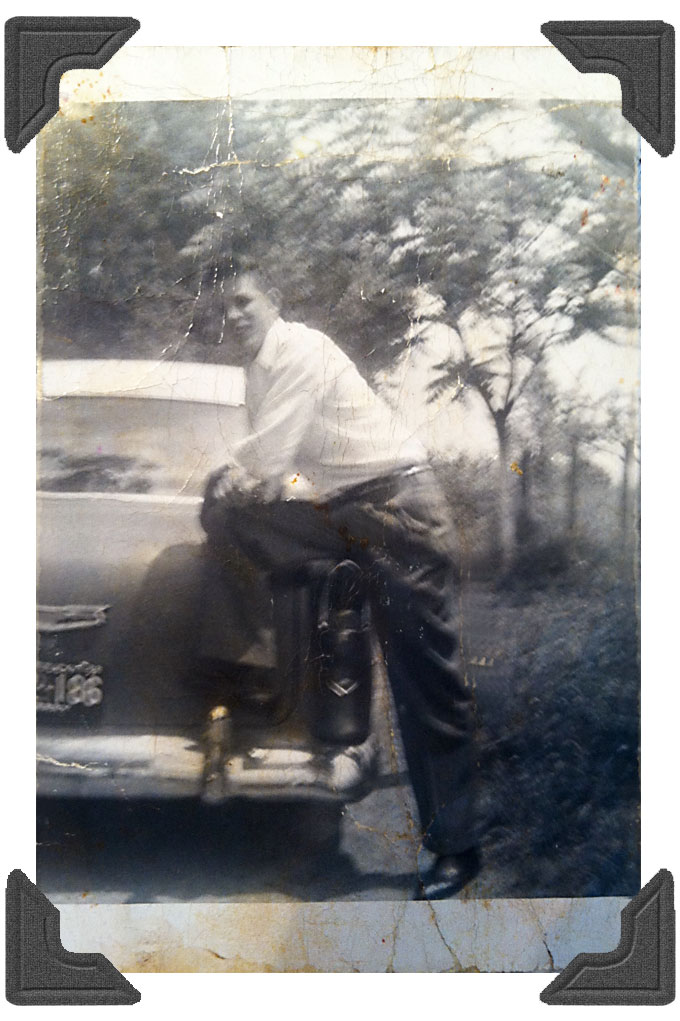The Velocity of a Bullet Is Absolute
1
Before my cousin mentioned the puppies, I hadn’t thought
a mother would kill her young, and even after he mentioned it,
the deaths, I preferred to consider his dog to be one of a kind,
an anomaly. How else to account for torn up pup bodies?
It seemed natural, at 10, to blurt out, I’d shoot her.
A boy has nothing to do with contingencies. To him,
an in media res world is serial, undiscovered absolutes.
The solipsism of childhood is well-known. A child grows,
and before he or she does we expect less. Or stop all of that
by offering a loaded .22 pistol, saying, Go ahead. Take charge.
In this, he was like the fathers brothers uncles—mothers—
who walk us to deep water and toss us in, saying, Swim.
I hated him. Hated the heft and weight of the revolver.
Hated the State of Virginia and everyone named Billy.
I hated being told to squeeze, not jerk, the trigger.
He squatted in summer earth by his exhausted dog,
separating her away from the remainder of the litter.
She went, answering some fresh memory of kindness.
He motioned where I should put the round (or rounds).
Stepped back and a little away from the panting dog,
acting as if he had considered and believed I’d shoot.
I can say now, after 50 years, why I hated him then.
Because he took the gun. Before I could act. Raised
the blue-black barrel. Fired. Bent down. Fired again.
2
They lied he didn’t use a Christmas-gift Remington 12-gauge pump
and kept the casket closed. Both parents were the picture of grief—
both Bill and Blanche had to be sedated, both had to be kept away
from Banks & Craft Funeral Home where they took him. Neon
wasn’t dead in those days. You could sit down to a cheeseburger
and fries and a “Co-cola” at Tucker’s Drugstore & Soda Fountain.
You could rent a room at the Bentley Hotel, where Hazel Bentley
would fill you in on news and gossip from as far away as Frankfort.
There was D.V. Bentley’s brick Colonial mansion on Main Street
on the end of town by the A & P, the house Hazel lived in with her
crazy sister, Betty Ellen. You could buy a ticket to the Neon Theater
and watch Dennis Hopper and Peter Fonda murdered in Easy Rider.
You could haggle for a good price on a Mercury at Harlow Motors.
Top off the tank at Howard Collier’s Pure Oil. Banks & Craft was
still burying citizens of that much of eastern Kentucky, carting off
the wages of black lung in a Cadillac hearse with hand-painted logo.
Staggeringly drunk miners vanished from Saturday-night streets,
the War on Poverty had come and gone. To this Neon, we brought
Billy Barnett. A dying small town. Some paved streets drenched
in blood-letting and so could receive a body with a stalk of head
and almost no face. He went into the ground in Whitesburg—
on a day when what a man is or isn’t offers little impediment
to diggers on furlough from the mines, their dissatisfied wives,
men who’ll finish work under a sky too immense for memory.



Please contact me about this poetry.
I would like to talk to you about your memories of this.